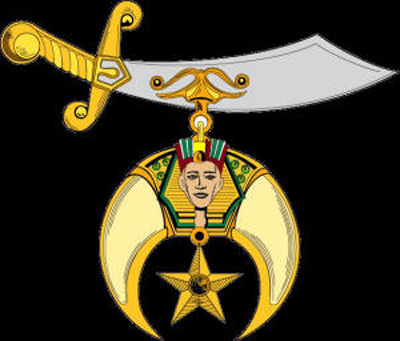Post by Sapphire on Apr 11, 2010 1:02:47 GMT -5
I am at a loss for words. I really can't wrap my head around this entire situation. This brings disrespect and hatred to a whole other level. I cannot even conceive of the horror, sadness, humiliation, helplessness this man's parents must have felt when they opened their door. The effort that it took to do all of this scares me. What kind of person, what kind of soul, what kind of evil... unbelievable.
www.msnbc.msn.com/id/36376840/ns/world_news-africa/
Case in Senegal shows the intensity of homophobia in Africa
THIES, Senegal - Even death cannot stop the violence against gays in this corner of the world any more.
Madieye Diallo's body had only been in the ground for a few hours when the mob descended on the weedy cemetery with shovels. They yanked out the corpse, spit on its torso, dragged it away and dumped it in front of the home of his elderly parents.
The scene of May 2, 2009 was filmed on a cell phone and the video sold at the market. It passed from phone to phone, sowing panic among gay men who say they now feel like hunted animals.
"I locked myself inside my room and didn't come out for days," says a 31-year-old gay friend of Diallo's who is ill with HIV. "I'm afraid of what will happen to me after I die. Will my parents be able to bury me?"
A wave of intense homophobia is washing across Africa, where homosexuality is already illegal in at least 37 countries.
In the last year alone, gay men have been arrested in Kenya, Malawi, Sierra Leone and Nigeria. In Uganda, lawmakers are considering a bill that would sentence homosexuals to life in prison and include capital punishment for 'repeat offenders.' And in South Africa, the only country that recognizes gay rights, gangs have carried out so-called "corrective" rapes on lesbians.
"Across many parts of Africa, we've seen a rise in homophobic violence," says London-based gay-rights activist Peter Tatchell, whose organization tracks abuse against gays and lesbians in Africa. "It's been steadily building for the last 10 years but has got markedly worse in the last year."
Desecration of bodies
To the long list of abuse meted out to suspected homosexuals in Africa, Senegal has added a new form of degradation — the desecration of their bodies.
In the past two years, at least four men suspected of being gay have been exhumed by angry mobs in cemeteries in Senegal. The violence is especially shocking because Senegal, unlike other countries in the region, is considered a model of tolerance.
"It's jarring to see this happen in Senegal," says Ryan Thoreson, a fellow at the International Gay and Lesbian Human Rights Commission who has been researching the rise of homophobia here. "When something like this happens in an established democracy, it's alarming."
Even though homosexuality is illegal in Senegal, colonial documents indicate the country has long had a clandestine gay community. In many towns, they were tacitly accepted, says Cheikh Ibrahima Niang, a professor of social anthropology at Senegal's largest university. In fact, the visibility of gays in Senegal may have helped to prompt the backlash against them.
Wedding sparks a backlash
The backlash dates back to at least February 2008, when a Senegalese tabloid published photographs of a clandestine gay wedding in a suburb of Dakar, the capital. The wedding was held inside a rented banquet hall and was attended by dozens of gay men, some of whom snapped pictures that included the gay couple exchanging rings and sharing slices of cake.
The day after the tabloid published the photographs, police began rounding up men suspected of being homosexual. Some were beaten in captivity and forced to turn over the names of other gay men, according to research by the International Gay and Lesbian Human Rights Commission.
Gays immediately went into hiding and those who could fled to neighboring countries, including Gambia to the south, according to the New York-based commission. Gambia's erratic president declared that gays who had entered his country had 24 hours to leave or face decapitation. Many returned to Senegal, where they lived on the run, moving from safehouse to safehouse.
In March 2008, Senegal hosted an international summit of Muslim nations, which prompted a nationwide crackdown on behaviors deemed un-Islamic, including homosexuality.
The crackdown also coincided with spiraling food prices. Niang says political and religious leaders saw an easy way to reach constituents through the inflammatory topic of homosexuality.
"They found a way to explain the difficulties people are facing as a deviation from religious life," says Niang. "So if people are poor — it's because there are prostitutes in the street. If they don't have enough to eat, it's because there are homosexuals."
www.msnbc.msn.com/id/36376840/ns/world_news-africa/
Case in Senegal shows the intensity of homophobia in Africa
THIES, Senegal - Even death cannot stop the violence against gays in this corner of the world any more.
Madieye Diallo's body had only been in the ground for a few hours when the mob descended on the weedy cemetery with shovels. They yanked out the corpse, spit on its torso, dragged it away and dumped it in front of the home of his elderly parents.
The scene of May 2, 2009 was filmed on a cell phone and the video sold at the market. It passed from phone to phone, sowing panic among gay men who say they now feel like hunted animals.
"I locked myself inside my room and didn't come out for days," says a 31-year-old gay friend of Diallo's who is ill with HIV. "I'm afraid of what will happen to me after I die. Will my parents be able to bury me?"
A wave of intense homophobia is washing across Africa, where homosexuality is already illegal in at least 37 countries.
In the last year alone, gay men have been arrested in Kenya, Malawi, Sierra Leone and Nigeria. In Uganda, lawmakers are considering a bill that would sentence homosexuals to life in prison and include capital punishment for 'repeat offenders.' And in South Africa, the only country that recognizes gay rights, gangs have carried out so-called "corrective" rapes on lesbians.
"Across many parts of Africa, we've seen a rise in homophobic violence," says London-based gay-rights activist Peter Tatchell, whose organization tracks abuse against gays and lesbians in Africa. "It's been steadily building for the last 10 years but has got markedly worse in the last year."
Desecration of bodies
To the long list of abuse meted out to suspected homosexuals in Africa, Senegal has added a new form of degradation — the desecration of their bodies.
In the past two years, at least four men suspected of being gay have been exhumed by angry mobs in cemeteries in Senegal. The violence is especially shocking because Senegal, unlike other countries in the region, is considered a model of tolerance.
"It's jarring to see this happen in Senegal," says Ryan Thoreson, a fellow at the International Gay and Lesbian Human Rights Commission who has been researching the rise of homophobia here. "When something like this happens in an established democracy, it's alarming."
Even though homosexuality is illegal in Senegal, colonial documents indicate the country has long had a clandestine gay community. In many towns, they were tacitly accepted, says Cheikh Ibrahima Niang, a professor of social anthropology at Senegal's largest university. In fact, the visibility of gays in Senegal may have helped to prompt the backlash against them.
Wedding sparks a backlash
The backlash dates back to at least February 2008, when a Senegalese tabloid published photographs of a clandestine gay wedding in a suburb of Dakar, the capital. The wedding was held inside a rented banquet hall and was attended by dozens of gay men, some of whom snapped pictures that included the gay couple exchanging rings and sharing slices of cake.
The day after the tabloid published the photographs, police began rounding up men suspected of being homosexual. Some were beaten in captivity and forced to turn over the names of other gay men, according to research by the International Gay and Lesbian Human Rights Commission.
Gays immediately went into hiding and those who could fled to neighboring countries, including Gambia to the south, according to the New York-based commission. Gambia's erratic president declared that gays who had entered his country had 24 hours to leave or face decapitation. Many returned to Senegal, where they lived on the run, moving from safehouse to safehouse.
In March 2008, Senegal hosted an international summit of Muslim nations, which prompted a nationwide crackdown on behaviors deemed un-Islamic, including homosexuality.
The crackdown also coincided with spiraling food prices. Niang says political and religious leaders saw an easy way to reach constituents through the inflammatory topic of homosexuality.
"They found a way to explain the difficulties people are facing as a deviation from religious life," says Niang. "So if people are poor — it's because there are prostitutes in the street. If they don't have enough to eat, it's because there are homosexuals."











